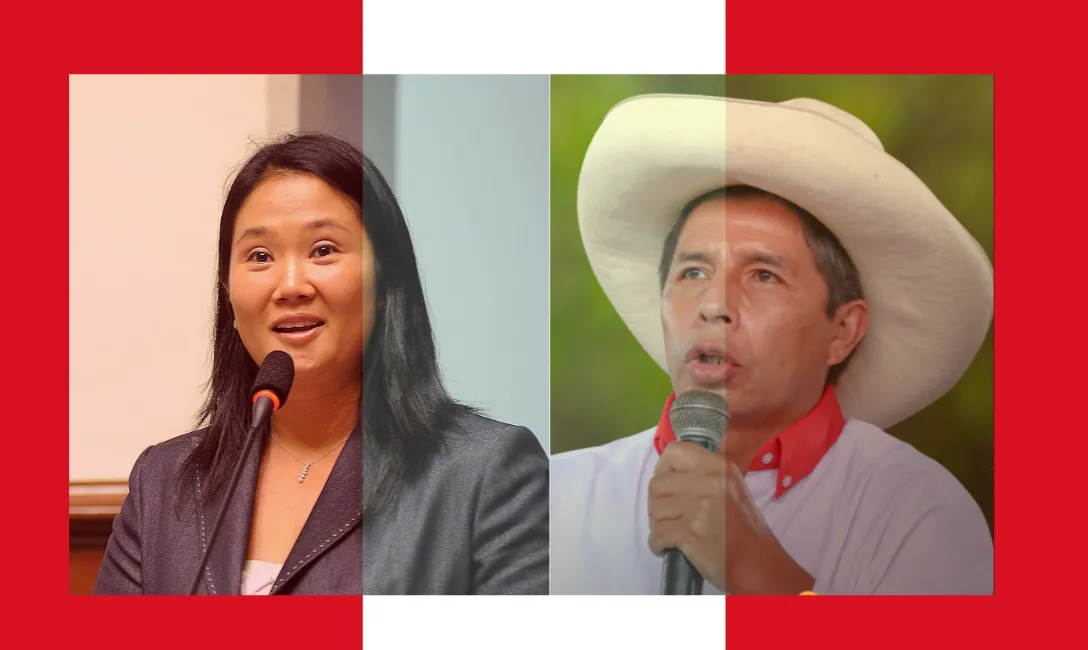
More than 25 million Peruvians will go to the polls on 6 June to define in ballotage who will be their next President of the Republic. This election comes after five years marked by a political crisis caused by the confrontation between Congress and the Executive. In addition, since 2020, a severe health crisis caused by the Covid-19 pandemic has made Peru one of the countries with the most deaths per million inhabitants in the world. Therefore, the electoral process takes place in particularly complex conditions.
Disclaimer: Views expressed in this commentary are those of the author. This commentary is independent of specific national or political interests. Views expressed do not necessarily represent the institutional position of International IDEA, its Board of Advisers or its Council of Member States.
Este artículo está disponible en español.
In the first round of this election, no candidate obtained more than 50 per cent of the votes—the threshold required by the Constitution to win the Presidency. The two candidates with the most votes, Pedro Castillo and Keiko Fujimori, also represent the parties that generate the most resistance. In the case of Castillo for his proposals that are considered extreme left. And in the case of Fujimori for the accusations of corruption against her and the authoritarian past of her organization.
In this context, the election campaign has strongly polarized society, and, in recent days, the atmosphere has become rarefied even more with unfounded rumours of possible fraud. Moreover, considering that the latest polls that can be published indicate a statistical tie between the two candidates, it is estimated that tension will grow and that the temptation not to acknowledge the results could arise.
The most recent poll by the Institute of Peruvian Studies (IEP) shows a voting intention of 40.3 per cent for the left-wing candidate Pedro Castillo and 38.3 per cent for the conservative right-wing candidate Keiko Fujimori. IPSOS poll registers 43.6 per cent for the former and 41.7 per cent for the latter. That is a 2.0 per cent and 1.9 per cent difference, respectively.
The situation becomes more complex if one considers that these voting intentions are not homogeneous, either within the territory or between socio-economic levels. According to IEP, Castillo far outperforms Fujimori in the centre, south, and east of the country, while Fujimori leads by a lot in Lima. In the centre, Castillo achieves 49.5 per cent while Fujimori only 28.9 per cent, in the south 56.3 per cent against 19.6 per cent, and in the east 48.6 per cent against 30.3 per cent. In Lima, on the other hand, she shows a voting intention of 51.5 per cent, almost doubling Castillo's 27.0 per cent.
In an analysis by socio-economic sectors, we found that Castillo supports 45.9 per cent in the D/E sectors, the least favoured by macroeconomic stability, versus Fujimori's 30.0 per cent. In contrast, in the A/B sectors, the ones with the best incomes, Fujimori's candidature reaches 53.1 per cent compared to 34.5 per cent of his rival.
For the time being, the election tensions are already expressed in the Lima media, most of which have taken sides with Fujimori's candidacy by harshly attacking Castillo. Unfortunately, this same phenomenon occurs on social media, which has been tinged not only with aggressive and hate speech but with fake news and misinformation.
In recent days, the flow of fake news has increased, generating doubts about the fairness of the elections and fueling fears of fraud. In addition, to discredit Peru's electoral tribunal (Jurado Nacional de Elecciones), it has been pointed out that its President has had radical left-wing sympathies in his youth and, as a lawyer, he has defended accused of terrorism criminal charges during the internal armed conflict between the state and extreme left-wing subversive groups that left 69,000 dead between 1980 and 2000.
For his part, regarding the Head of the ONPE, the agency that organizes the elections, it has been pointed out that he has ties with Fujimori's party and with some of its most conspicuous members. In addition, in recent hours, unfounded allegations have been made about the inclusion of deceased citizens on the voters' register, a fact that has fueled several other conspiracy theories without any support. However, despite this complex context, various civil society sectors and academia have issued calls for prudence and respect for democratic institutions, which have even resulted in commitments that both candidates have signed and assured to respect the election results.




